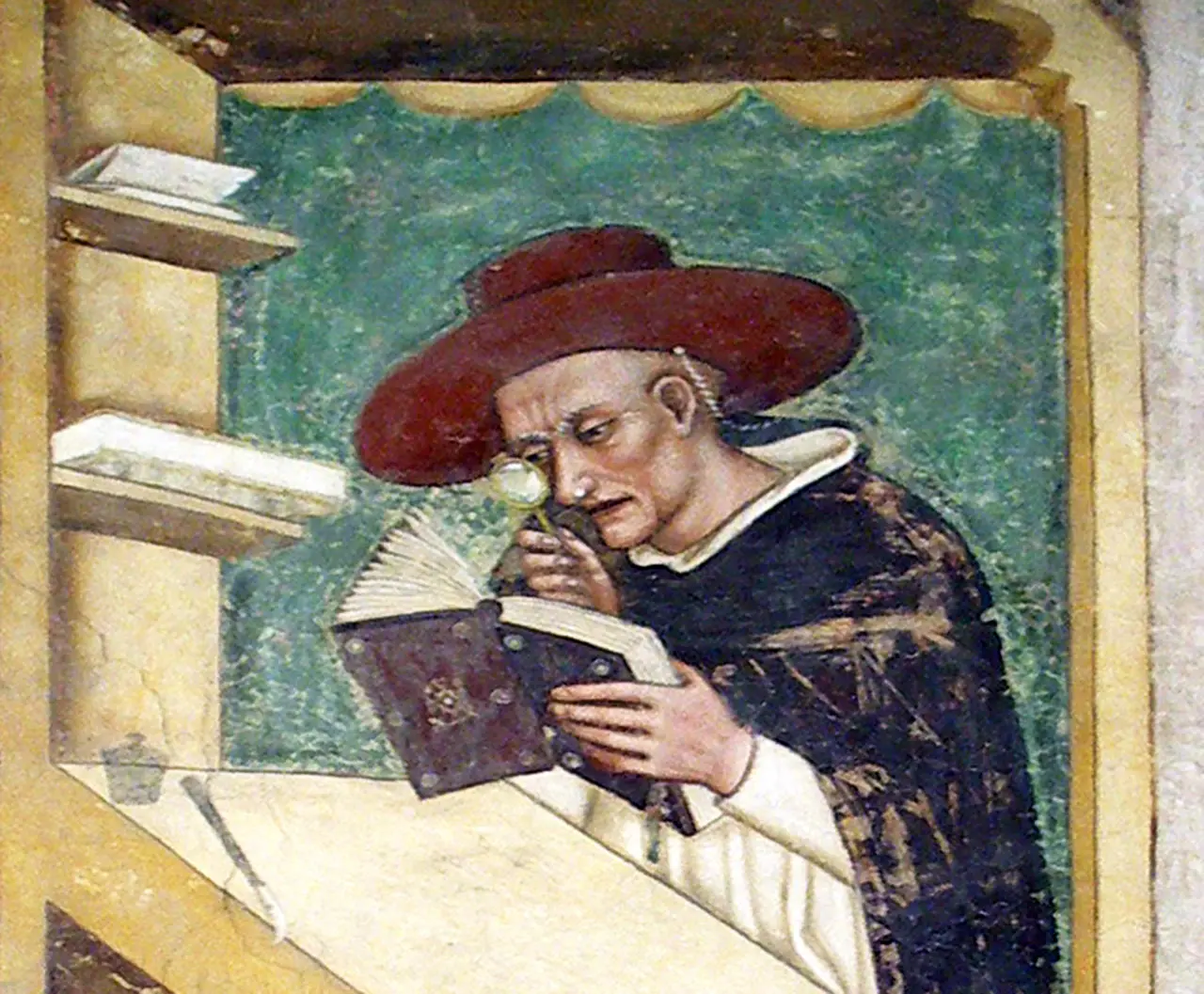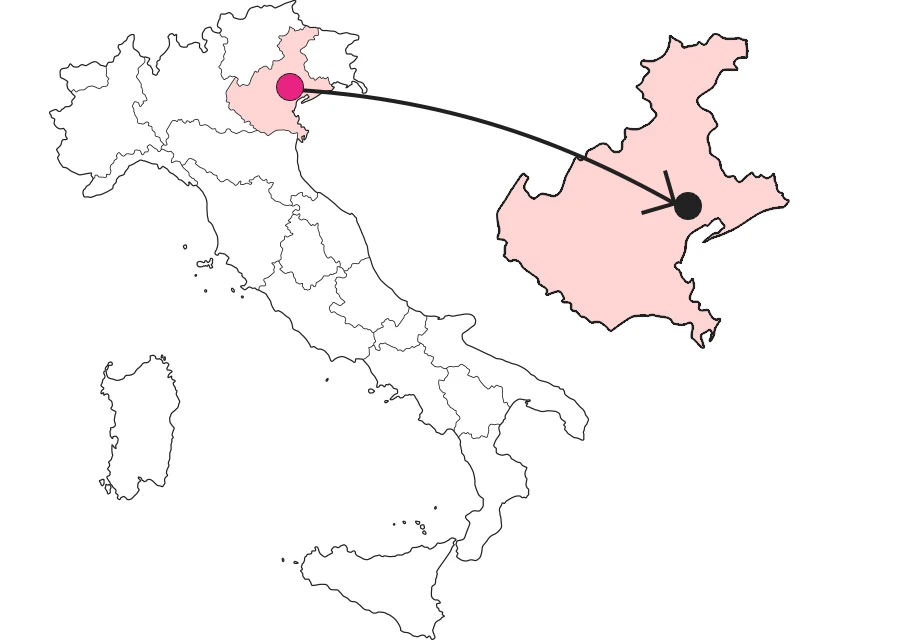SHARRYLAND


The 40 distinguished Dominicans of Thomas of Modena
The first portrait of a man with glasses and 39 other wonders, in San Nicolò, Treviso


Where is

What it is and where it is
To the side of the monumental church of San Nicolò, in the serenity of the cloisters of the Diocesan Seminary, opens the Hall of the Chapter of the Dominicans. The Hall was magnificently frescoed by Tommaso da Modena in 1352 with portraits of forty distinguished Dominican friars including scholars, bishops, theologians, and a pope. The frescoes, about 150 cm high, are painted just below the wooden ceiling around the entire hall.
Why it is special
Tomaso da Modena's originality lies in having captured the characters not in an attitude of prayer, but while they are intent on their daily activities of studying and copying sacred texts. Tomaso depicts them in their physiognomic features with great observational skill, letting their moods, thoughts, and humors shine through in an extremely realistic way.
Not to be missed
Linger to catch the wonderful details of the friars sitting in their cells at the writing desk, among books, papers, inks and quills. And then pay a visit to the church of St. Nicholas and stop in the cloister of the Seminary: an oasis of silence in the center of the city.
Curiosities
Among the frescoes appears the world's first pictorial representation of a person wearing glasses. It is Cardinal Hugh of Provence. Apparently, spectacles had been invented in the previous century in nearby Venice, where glassmaking technology was highly developed. Another friar, however, is depicted wearing a magnifying glass: this is Cardinal Nicholas of Rouen.
Enter the Map of Italy's Undiscovered Wonders and find treasures where you least expect it... Inspire, Recommend, Share...
Collections
The Map thanks:
Enter the Map of Italy's Undiscovered Wonders and find treasures where you least expect it... Inspire, Recommend, Share...
Where is

Collections

 Paladin
Paladin
